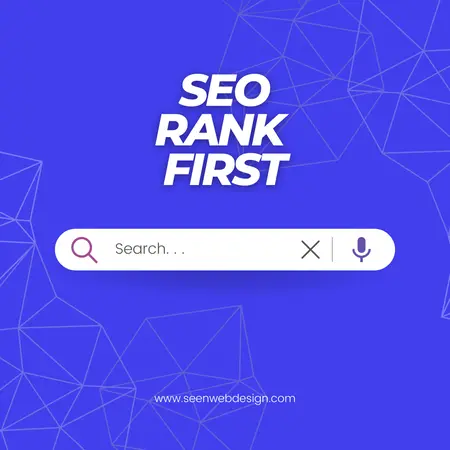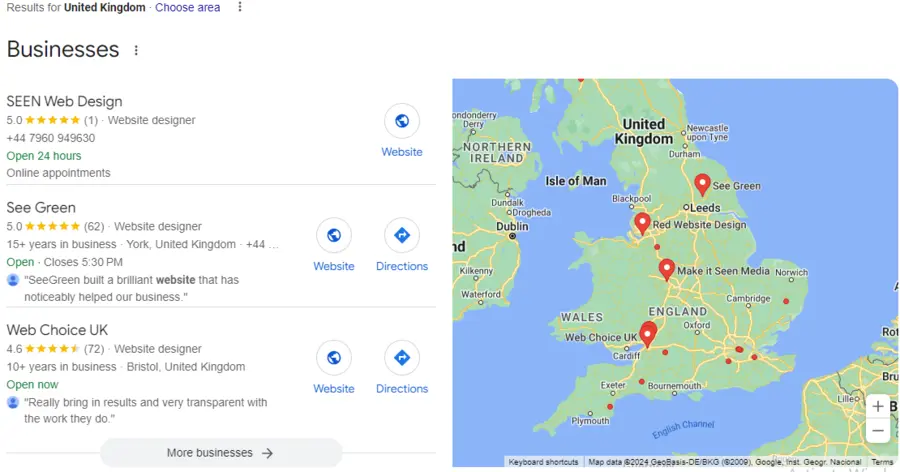Search Engine Optimisation
In today's digital age, having a strong online presence is crucial for any business. But how can you make sure your website stands out among the millions of others? That's where Search Engine Optimisation (SEO) comes into play. SEO is the process of optimising your website to improve its visibility on search engine result pages (SERPs). By focusing on SEO strategies, you can drive organic traffic (free vistors) to your website and increase your chances of being found by potential customers.
But what exactly is SEO? In simple terms, it's the practice of optimising your website's content and structure to make it more appealing to search engines like Google. This involves a variety of techniques, including keyword research, on-page optimisation, content writing, link building, great web design and technical SEO. By understanding how search engines work and what factors they consider when ranking websites, you can tailor your website to meet their requirements and improve your chances of appearing higher in search results. In this article, we'll delve deeper into the world of SEO and explore its importance for online businesses. So let's get started and unlock the secrets to driving organic traffic and boosting your online rankings.

What are the different types of SEO?
If you're looking to boost your website's visibility and drive organic traffic, it's important to understand the different types of SEO strategies available. From on-page optimization to off-page techniques, each approach plays a crucial role in improving your search engine rankings. We'll explore the various types of SEO strategies we can use to optimise your website. On-page SEO focuses on optimizing elements directly on your website, such as meta tags, keywords, and content structure. It involves creating high-quality and relevant content that appeals to both search engines and users. Off-page SEO, on the other hand, involves building trust and authority for your website through external factors. This includes link building, social media marketing, and building relationships with influencers in your industry.
Technical SEO
Technical SEO ensures that your website is properly optimised for search engine crawling and indexing. This involves optimising your website's speed, mobile-friendliness, and overall user experience. By understanding and implementing these different types of SEO strategies, you'll be well-equipped to improve your search engine rankings and attract more organic traffic to your website.
Local SEO
Local SEO is an optimisation that focuses on appearing in local search results. It’s a great way of ranking high in particular areas, towns, or regions so your users searching for your local business can find you much easier. Local SEO has great advantages for small and medium companies, whether you are a trader, local service provider, or offer a product in your local area, then local SEO is perfect. Our services include link building, local directory listing, keyword optimisation, and content writing. You will be surprised at how we can boost your rankings. We start by researching your competitor's websites and then focus on the results that need to be improved. It's a technique to help build your local business and attract customers at no cost. You'll receive results on pages such as Google Search, Bing Search, Google Maps, and Bing Maps. It’s a great way of making Google understand where your business is located and the products and services you have to offer. It can build your trust, brand awareness, and relevance to help you rank.

On page optimisation
On-page optimisation also referred to as on-page SEO, is when you make changes on your website to help improve its search engine rankings. These changes can be as small as changing content, images, coding, website speed, and other small elements. Small changes to a web page can have such a big impact on its rankings to help improve website traffic. A few common tasks with on-page SEO include internal linking, title tags, URLs, and page structure. Google always looks for on-page SEO signals when ranking pages, not only does it look for quality content but it also prioritises the user's journey on a webpage and how easy it is for a user to source information for what they are looking for. Pages that are relevant and useful then the chances are you will rank.

SEO Optimised

Pay Monthly Web Design

Link Building

Mobile Optimised

Google Page Speed Optimised
